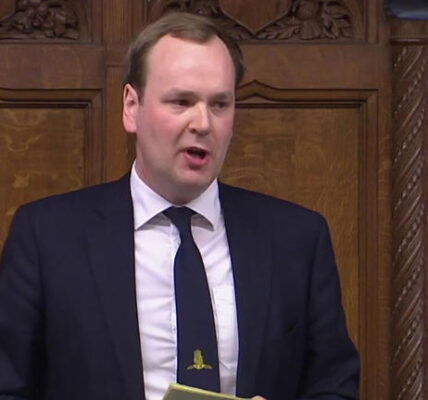Council Tax Raid on Pensioners
Council Tax Raid on Pensioners: Local councils urge the government to allow them to scrap the single-person discount, raising concerns for millions of pensioners and those living alone amid a looming financial crisis.
As the UK faces a significant financial challenge, local councils are sounding the alarm about the need for urgent reforms. One proposal that’s causing a stir is the idea of a Council Tax Raid on Pensioners. The County Councils Network (CCN), which represents some of the largest councils in England, is urging the government to empower local authorities to eliminate the single-person discount on council tax. This discount, currently providing a 25% reduction for individuals living alone, is worth around £543 a year for those in an average band D property.

Understanding the Discount
The single-person discount is a lifeline for many, especially for the 8.4 million people who benefit from it, including approximately 4 million pensioners. Many of these pensioners live alone due to the loss of a partner. The potential removal of this discount has sparked concerns about the financial strain it could impose on vulnerable groups within our communities. While the Chancellor has ruled out scrapping this discount on a national scale, local councils may still have the opportunity to make this decision independently. A Treasury spokesman has not dismissed the possibility of devolving this power to local authorities, leaving room for debate.
The Financial Crisis
The proposal comes in the context of a staggering £54 billion black hole in council finances. The Institute for Fiscal Studies (IFS) estimates that abolishing the single-person discount could generate around £3 billion in additional revenue for councils. This new funding would be crucial as many councils are facing dire financial situations. According to the CCN, six out of ten councils may be at risk of bankruptcy by the end of the current parliament due to soaring demands for care services and support for children with special needs.
In fact, a survey of council chief executives revealed that 16 councils could be at risk of declaring bankruptcy by 2026-27, with another six potentially following suit the year after if government funding does not increase. The looming financial crisis could have a devastating impact on services that serve over 16 million residents in England.
Rising Costs of Services
The CCN has identified rising costs and demands in three key areas: adult social care, children’s services, and home-to-school transport. These sectors account for a staggering 83% of the projected increase in council costs by 2030.
The pressures in adult social care are particularly acute. Local authorities have statutory responsibilities to provide care for elderly residents and those with disabilities. As the population ages, the demand for these services continues to grow, putting immense pressure on already strained budgets. Meanwhile, support for children with special educational needs and disabilities (SEND) has also surged. Spending in this area has increased by over 70% since 2018-19, jumping from £6.9 billion to £12 billion according to analysis by the Telegraph.
The Need for Flexibility
To tackle these challenges, the CCN is calling for greater flexibility in how councils manage their finances. They propose giving councils more power to adjust council tax rates, including the ability to scrap the single-person discount. Allowing local authorities to propose additional council tax bands could also help to generate more revenue.
The current system, where councils can only raise council tax by up to 4.99% annually without a referendum, is not enough to address the scale of the financial crisis. Even if councils maximize their tax increases, they still face a cumulative budget shortfall of £16.4 billion over the next five years. This shortfall threatens the viability of essential services that communities rely on.
Consequences of Inaction
If the £54 billion funding gap is not addressed, councils could find themselves providing little more than care services. The CCN warns that this shift could fundamentally change the role of local authorities. Instead of being community hubs that support a wide range of services, councils may become narrowly focused on social care, potentially neglecting other vital services like libraries, recreational facilities, and community programs.
The CCN has highlighted the urgent need for reforms related to special needs provision for children, particularly for those with autism and ADHD. As costs for supporting these children continue to spiral, councils are being forced to divert even more funding to cover these expenses, further straining their already tight budgets.
What Can Be Done?
To prevent councils from falling into bankruptcy and losing their ability to serve their communities, a collaborative approach between the government and local authorities is essential. The CCN has called on the government to engage in meaningful discussions about the funding crisis facing councils and to explore options that can provide financial relief.
One potential solution is to reassess the statutory responsibilities placed on councils. By reforming how these responsibilities are defined, it may be possible to create a more sustainable funding model that allows councils to meet the needs of their residents without sacrificing essential services.
Conclusion
The looming Council Tax Raid on Pensioners raises significant concerns for many individuals and families across the country. While the financial pressures on councils are real and urgent, any solution must consider the impact on vulnerable populations, particularly pensioners living alone.
The conversation surrounding council tax reform and the potential removal of the single-person discount must take into account the voices of those affected. As councils navigate these challenging times, it’s crucial to strike a balance between financial sustainability and social responsibility. Without thoughtful action, the consequences could be far-reaching, affecting not only the financial health of councils but also the well-being of millions of residents who rely on their services.
Related:
Rachel Reeves Pension Reforms 2024: 5 Bold Changes That Will Transform Your Retirement!



